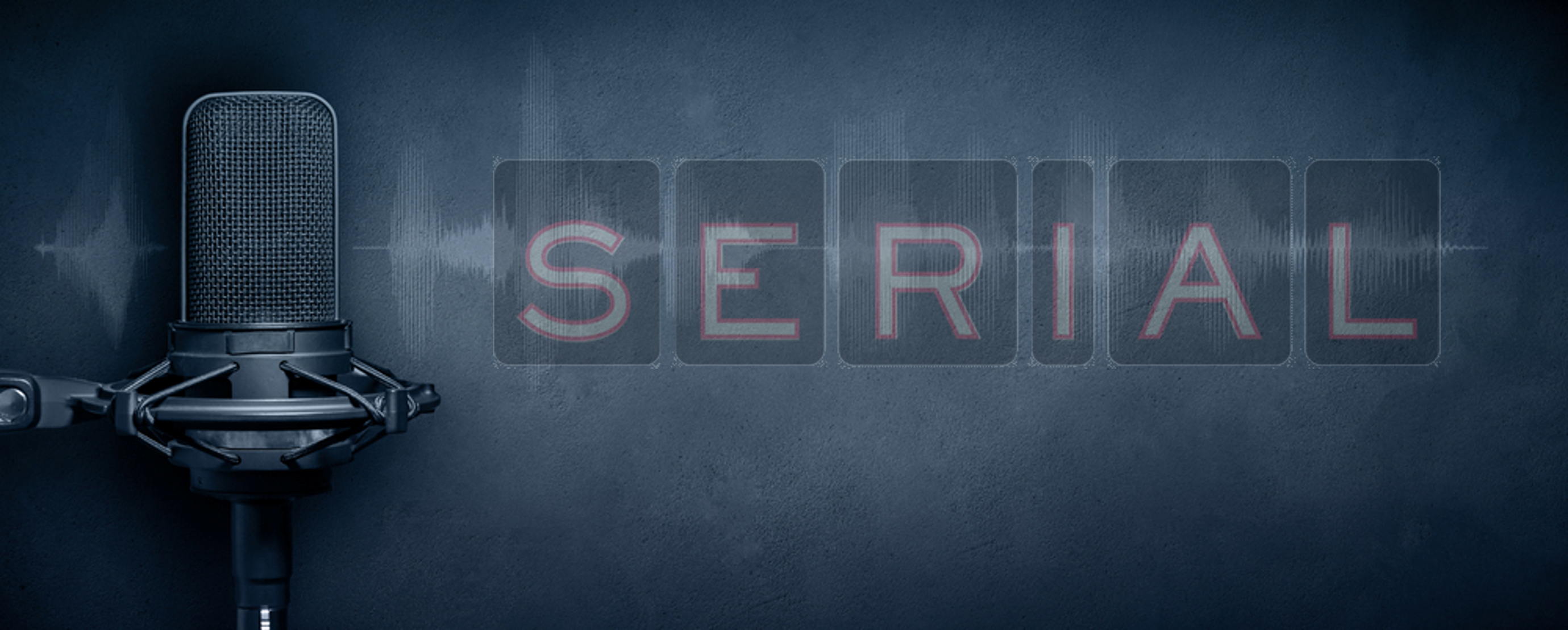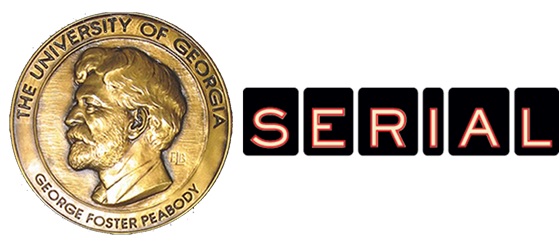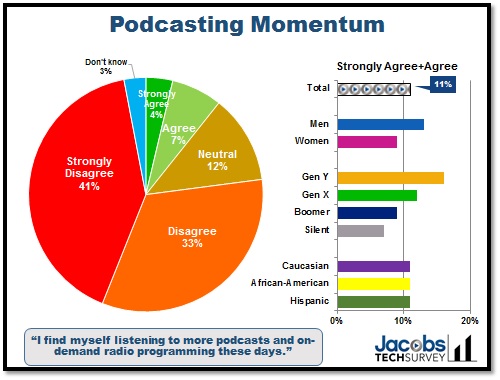
Yesterday, the news cycle was dominated by Queen Elizabeth II’s funeral, and related conjecturing on cable news about where the monarchy goes from here. Without an ounce of offense in this comment, it has been a long 12 days since the passing of England’s longest ever queen.
With all the coverage, you may have missed another very big story that broke late in the day. Adnan Syed’s prison sentence was vacated yesterday by a Baltimore circuit judge. As of right now, Syed is a free man, pending whether the state of Maryland opts to drop to murder charge or try him again. They have 30 days to make that call.
Syed was the subject of the breakthrough podcast, “Serial,” produced back then by the WBEZ (Chicago)/”This American Life” team. The podcast – and the case revolved around the 1999 murder of Hae Min Lee, Syed’s high school girlfriend.
No doubt about it – the wheels of justice turn at a glacial rate, especially in this case. But there’s no doubt this seminal podcast, produced and narrated by Sarah Koenig were the difference-makers in drawing attention to the case, and ultimately getting Syed freed.
Sarah Koenig and “Serial” will drop a new episode with an update this morning – how appropriate for perhaps the greatest podcast of all time.
Sarah was at the courthouse when Adnan was released, a new episode is coming tomorrow morning. https://t.co/GmO3jmGeoy
— Serial (@serial) September 19, 2022
When “Serial” first debuted in 2014, it rekindled new interest in the struggling podcast medium, virtually creating and setting the bar for the “true crime” genre. For untold millions, “Serial” was their first exposure to the podcasting platform. It was also the first year for Podcast Movement, a prescient decision by Dan Franks and Jared Easley originally funded by a Kickstarter campaign.
When it first launched, some in the podcasting space actually expressed a degree of remorse toward “Serial,” always quick with reminders that podcasts were invented a decade earlier. And some of the elitist podcasting producers also noted “Serial’s” opening episode actually aired on NPR, a tremendous boost for a fledgling series.
Well, it worked – on multiple levels. At the time, I blogged about the impact of “Serial” on podcasting, culture, investigative journalism, and economics.
Back then, “Serial” had racked up an unheard of 77 million downloads. Today, it has amassed nearly five times that many.
And in 2014, podcast revenue was spotty. It wasn’t until three years later when the medium took in $314 million. When 2022 is all said and done, the Interactive Advertising Bureau estimates the total take on podcasts will be north of $2 billion.
So, what have we learned? First (and foremost), producing a high-quality podcast is incredibly hard work. It’s not cheap or easy, requiring much skill, patience, and commitment.
And even if it manages to snag a prestigious award, there’s no guarantee it will provide enough return on its investment to warrant another season. In the past few years, we have seen complex, expensive, and well-produced podcasts throw in the towel because they could not sustain themselves.
“Serial” also taught us that as the space has become more cluttered with podcasts, it has been more difficult to discover podcasts you actually want to listen to. While the podcasting space is now gushing with money, cashing in continues to be a challenge for most producers.
This latest feather in “Serial’s” cap is a reminder of how a great, well-researched podcast from the heart can continue to produce results and have impact. But like great films, movies, and morning shows, monster hits are few and far between.
Great culture and art endure long after their born-on date. Kudos to Koenig and the “Serial” team for setting a high bar eight years ago – and again today.
Interestingly, not everyone is happy with the verdict handed down by Baltimore City Circuit Judge Mellissa Phinn. The disgruntled include the victim’s brother, Young Lee, who made this statement upon hearing the news about the man who got off the hook for killing his sister:
“This is not a podcast for me.”
No, this is real life, yet another reason why this podcast has been nothing short of remarkable.
Enjoy this look back at “Serial” from 2014.
November 2014
So the good news is that the wildly successful public radio podcast “Serial” has just nabbed a highly respected Peabody Award. That makes it the first podcast to pull that off.
And that’s also the bad news, because now the “Serial” team may be feeling the pressure to recreate that success. At more than 77 million downloads, “Serial” has singlehandedly put podcasting back on the radio broadcasting map, spawning many new business plans and lots of homegrown efforts centered around on-demand audio.
NPR’s Invisibilia is going through a similar process. Debuting in January, its 6-episode run has far-exceeded the expectations of NPR management, winding up both on the air (at 300+ affiliate stations) and garnering 33 million downloads in podcast form.
A recent article in The Hollywood Reporter talked about the growing buzz around podcasting. And as mentioned in an earlier post on podcasting, everyone’s getting into the act. Norm Pattiz acknowledged at RAIN last week that “Podcasting owes a debt to “Serial” that can never be repaid.” And he’s right because now the entire world of radio is thinking about podcasting – as a creative outlet and a business model.
But of course this also means that the floodgates will open and we’re going to hear a lot of really bad podcasts. Not to mention that everyone in radio seems to be name-dropping “Serial” in the same way new tech startups always invoked the names Steve Jobs and Apple.
So as impressive as “Serial” has been, Peabody and all, there are a couple of catches to keep in mind about this platform.
First, podcasting is still not a mass appeal entertainment form. In our newly released Techsurvey11, 21% of the total 41,600+ sample told us they’d listened to a podcast in the past month. That’s not a bad number, but it isn’t an indicator that podcasts are something that the vast majority of audio fans are consuming.
And right now today, we don’t see a great deal of momentum for podcasting. Just one in ten of our respondents (11%) says they’re listening to more of this on-demand programming.
While we see signs in TS11 that Sports fans, in particular, listen to podcasts, the platform has a long way to go if it’s going to make a lot of people rich and provide another way for broadcasters to create another programming and revenue stream.
The public radio world is a different story, because it has had more experience in the space. In just a few weeks, we’ll be investigating podcasting in our Public Radio Techsurvey7 as we sample audiences from a projected 50+ group of stations.
Of course, the second caveat revolves around the gnarly issue of content creation.
No speed bumps, yellow lights, or early warning systems will stop floods of DJs, stations, companies, and entrepreneurs from jumping in with both feet. As the teams at both “Serial” and “Invisibilia” will tell you, however, creating worthy content in this space is no easy task.
For inspiration – and for perspective – think about what’s going on in television. As it has turned out, video – from regular TV to YouTube to Netflix – became one of the focal points of Techsurvey11. And for good reason. The ways in which people consume video are rapidly changing – moving from linear viewing using a traditional programming schedule for real-time viewing – to an on-demand, whenever/whatever format.
We are experiencing a true renaissance of amazing television programming powered by a strong desire by Netflix and other networks and brands to pour billions of dollars into creating their own proprietary shows. Time-shifted viewing has forever changed the game, allowing upstarts like Netflix and YouTube to challenge the traditional broadcast and cable networks. Everyone involved in TV and video has upped their games.
Would-be podcasters should take note.
I have had countless dinners in the past couple of years where my companions started talking about their favorite TV shows and series – and the next thing you know, an hour has gone by. It is remarkable just how much fabulous programming is available on TV/video, to a point where most of us simply don’t have the time to keep up with all these great shows and series. Starting perhaps with The Sopranos and moving to Homeland and then Game of Thrones, The Walking Dead, and Mad Men, and followed by the instant release of entire seasons of House of Cards, And soon the term “binge watching” entered our lexicon and our lives.
These fundamental changes in the way we consume video programming is stunning. The Interactive Advertising Bureau reports that half of connected TV owners are more apt to stream their favorite programming than watch traditional TV. And in the case of video producers and content creators, they are now attracting the biggest celebrities and stars to their TV series. Amazingly, you don’t hear people talking enthusiastically about movies in the same way they’re now gushing about television. That’s truly a first.
Could it happen in radio? It all starts with shows and programs that are worthy of our leisure time and that have the ability to generate buzz.
And that takes us back to radio and podcasting. What’s happening with television viewing proves there’s the potential for radio listeners to consume audio content in an on-demand mode – and I don’t mean jukebox pure-plays. But hard lessons from the television camp also show that shoddily produced shows aren’t worth downloading and viewing at one’s convenience. Not every show or series is Downton Abbey and the failures and misfires abound. There would be few takers for a Garfunkel & Oates marathon.
That’s the lesson of “Serial” and probably why its producers may have fist-bumped when they heard the Peabody news. And then an hour later started wondering how in the world they can do it again.
Television has set a high bar. And in the same way that radio programmers had to re-evaluate everything in the ‘50s when TV sets starting landing en masse into virtually every home in America, that burden once again falls on radio executives seeking to cash in on podcasting.
Anyone can produce a podcast just like anyone can produce a YouTube video.
Producing great programs that will captivate the imaginations and interest of thousands of consumers isn’t going to come from simply repurposing content that has already aired or from a couple of people sitting around in a studio no longer worrying about bowtie stopsets or throwing around F-bombs.
If radio is to realize its podcasting potential and to truly take advantage of its talent and brands, it will require a detailed strategy, significant investment, and lots of time. Those are elements that have not been plentiful in recent years.
As Pattiz admitted, the industry owes a mega-thank-you to the producers and creators of “Serial.” And now a hearty congratulations.
But to produce a real winning audio platform is going to require more than just talking about it.
You don’t win a Peabody by slapping together schlock programming and calling it a podcast.
As is the case with all media, content isn’t king – it’s everything.
Podcasting done well is hard work.
- In Radio, You Just Never Know - April 17, 2025
- The Secret To Making A Great Podcast (And Great Radio) - April 16, 2025
- I Read The (Local) News Today, Oh Boy! - April 15, 2025






Thanks for this, Paul.